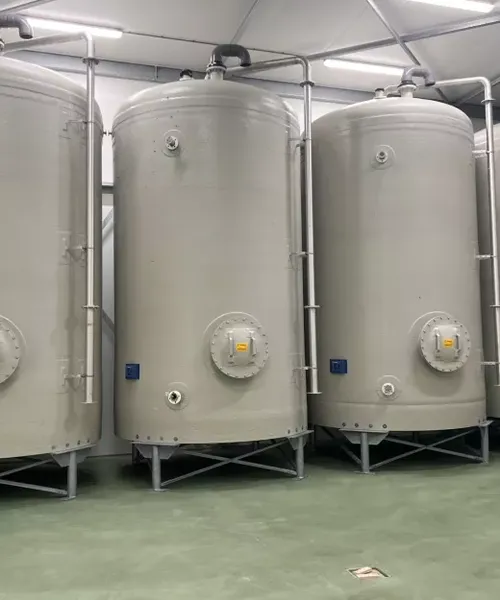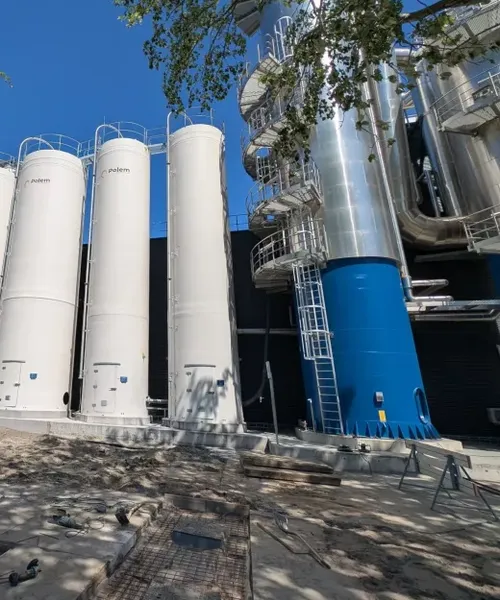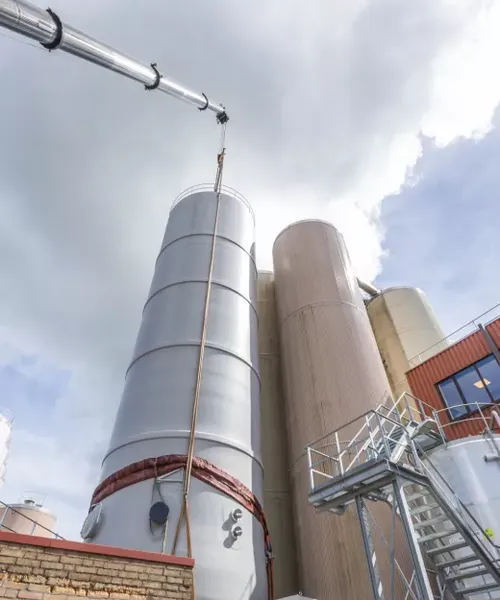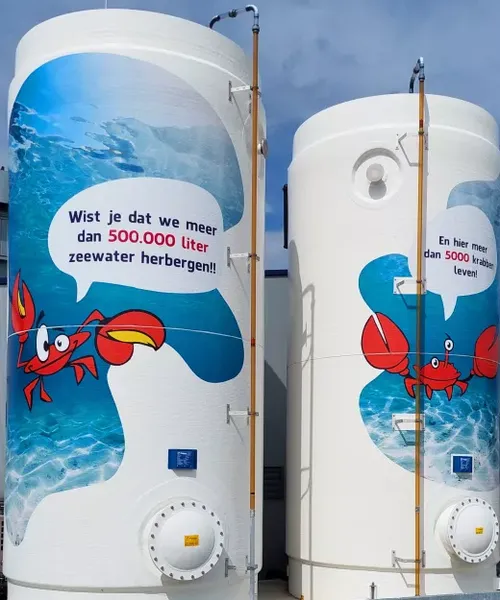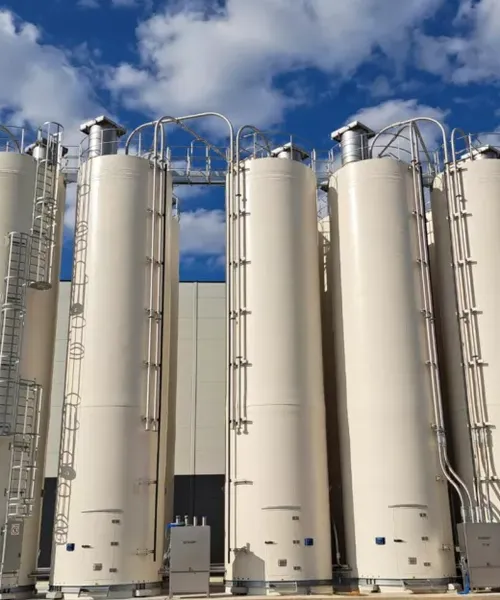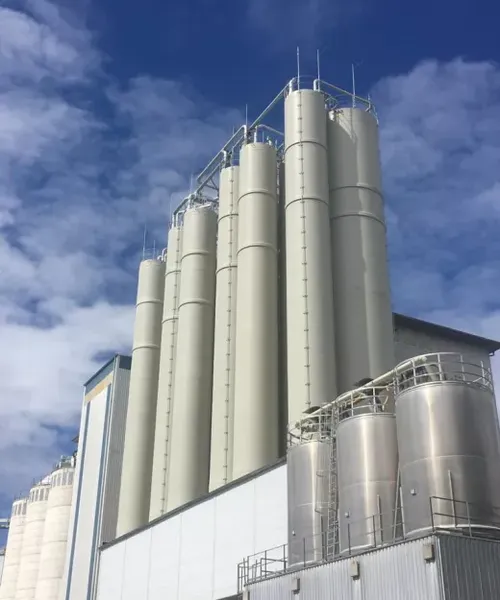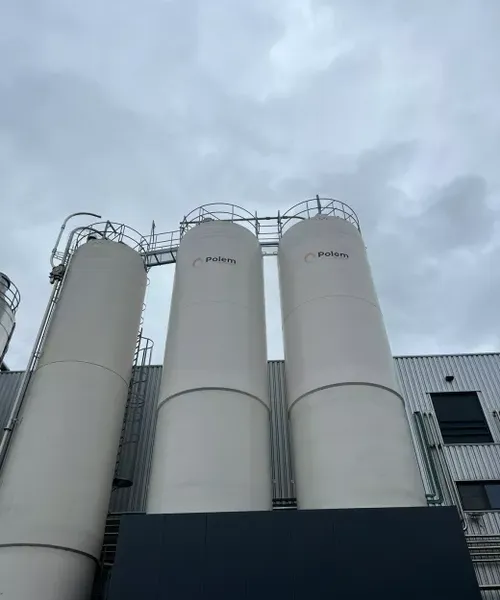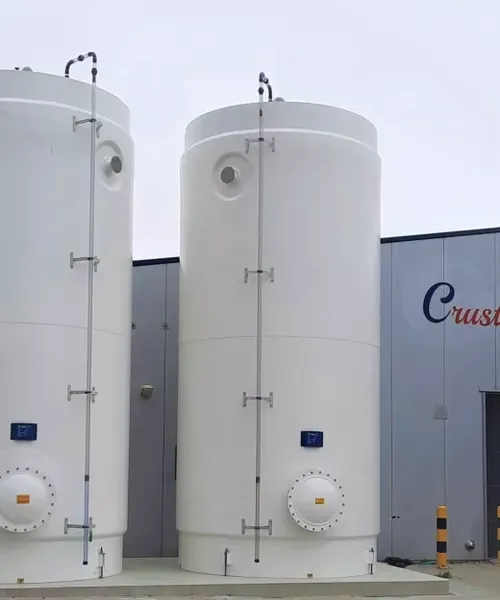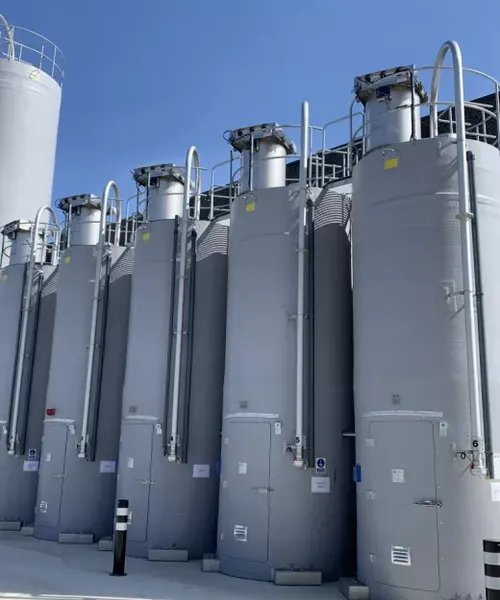Expansion of food production facility capacity with 810 m³
How Polem expanded production capacity in Poland by 810 m³ and enabled sustainable growth
Recently, Polem, in collaboration with Technology Unlimited, had the opportunity to realize a progressive project in Poland: the delivery of nine state-of-the-art flour and meal silos for a leading food producer.
The goal? To structurally increase the client's production capacity and improve the efficiency and sustainability of the production process.
Read more about opportunities in the food industry in our white paper.
Challenges and analysis
The client in Poland was dealing with growing market demand and outdated storage infrastructure. This created several bottlenecks:
- Capacity shortage: insufficient storage space led to unnecessary production interruptions and delays.
- Inefficient internal transport: limited silo capacity required frequent filling and transfer operations.
- Strict food safety standards: the existing silos no longer met the latest European guidelines for food-grade applications.
A thorough analysis clearly identified these underlying problems and formed the basis for an appropriate solution.
Solution and implementation
Together with Technology Unlimited, Polem developed a custom solution: delivery of nine new, high-quality composite silos, distributed across three different orders.
Silo specifications:
- Diameter: 3.5 meters
- Storage capacity per silo: 90 m³
- Total capacity: 810 m³
- Food-grade finish: fully compliant with the strictest food safety standards
- Material: lightweight and low-maintenance composite
The implementation process proceeded in phases:
- Detailed project preparation in close coordination with the client and Technology Unlimited
- Phased production and delivery of the silos from the Netherlands to Poland
- Local assembly and integration into existing infrastructure
- Thorough quality and safety inspection prior to commissioning
Flexibility in planning and close cooperation between all parties were crucial to guarantee a flawless result.
Results
The results speak for themselves:
810 m³ additional storage capacity, allowing production peaks to be easily managed
More efficient production process with less downtime and optimization of internal logistics
Lower operational costs due to fewer transfer movements and maintenance
Improved food safety, creating more confidence among customers and consumers
Increased sustainability thanks to the use of maintenance-free and energy-efficient composite materials
The project was delivered within the set deadline and to the full satisfaction of the client.
Lessons Learned
Key insights from this project:
Preliminary phase crucial: extensive upfront analysis delivers solutions that truly align with practice
Collaboration pays off: through synergy between Polem and Technology Unlimited, the entire process ran smoothly and efficiently
Customization makes the difference: no standard solution would have delivered this level of results
Flexibility in delivery: phased orders provided maximum room for client planning
Conclusion
With this project, Polem once again proves its value as a partner for sustainable and innovative storage solutions. Thanks to the new silos, the client in Poland can increase production capacity, work more efficiently, and comply with the strictest food safety standards.
This project also provides valuable insights for future international cooperation in the food industry.
FAQ
- What makes Polem's composite silos so special?The silos are manufactured from high-quality, lightweight composite material. This makes them extremely durable, low-maintenance, and ideal for applications where food safety is crucial.
- Why was a phased delivery of three orders chosen? A phased approach offered the client maximum flexibility in planning and limited the impact on ongoing production processes. This prevented factory downtime.
- Are these silos suitable for food products other than flour and meal?Absolutely. The food-grade finish and design make them suitable for a wide range of dry food products, such as sugar, starch, and milk powder.
- How does this project contribute to sustainability? Through the use of low-maintenance materials, the CO2 footprint is reduced in the long term. Additionally, the higher storage capacity helps reduce transport and transfer movements.
- How long did the entire project take from design to delivery? From design through delivery and commissioning, the project took approximately six months. Through good cooperation, the lead time could remain short and manageable.
Interested in innovative storage solutions?
Feel free to contact us for more information or a non-binding consultation. Our team is happy to help you with customized solutions!
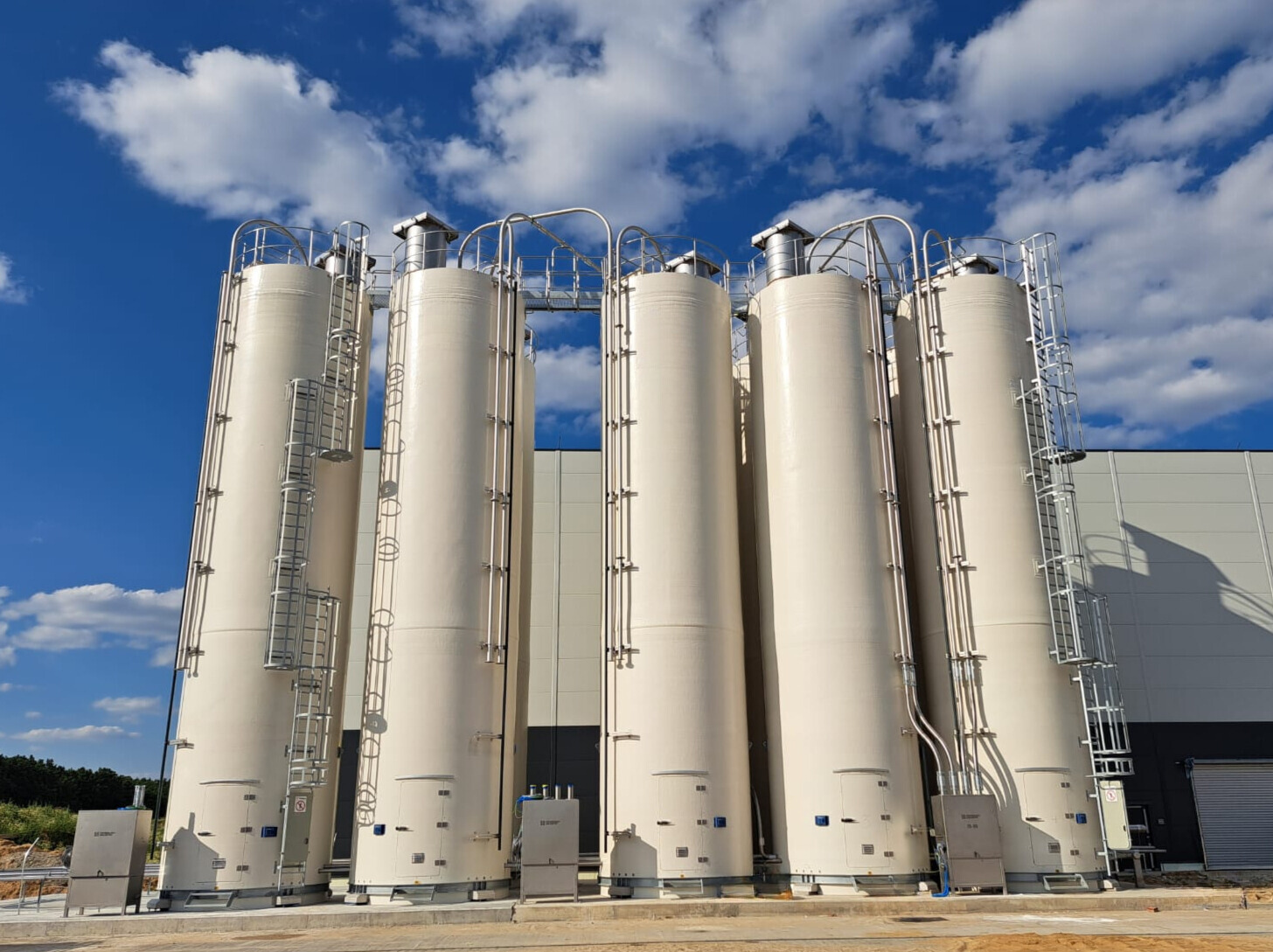

Our services

Installation
Your new silo or tank, carefully assembled and installed.

Inspections
One-time or periodic inspections of our silos and tanks. For control, safety and maintaining your proper flow.

Service
For repair, replacement, spare parts and advice. Meet our service team.

Repairs
In most cases, we repair damage to original quality.

Advice
Our market specialists assist you with industry-specific advice.
